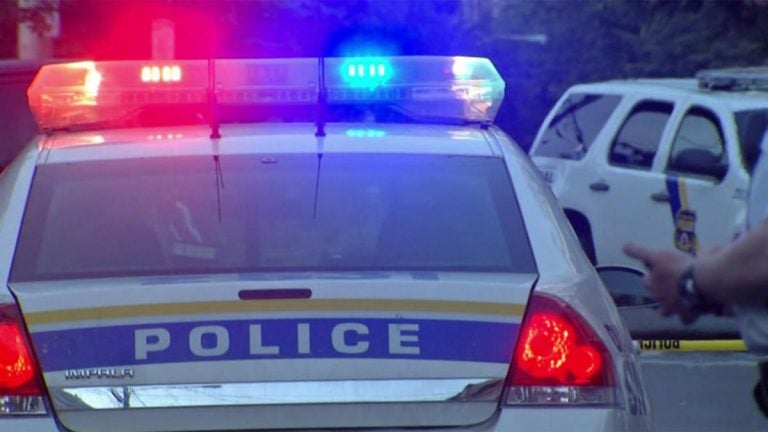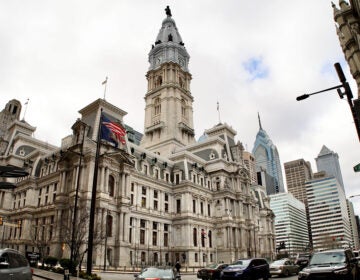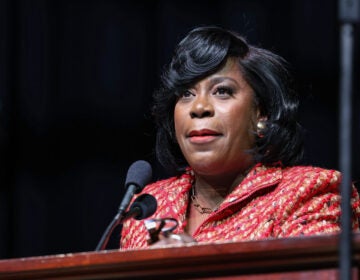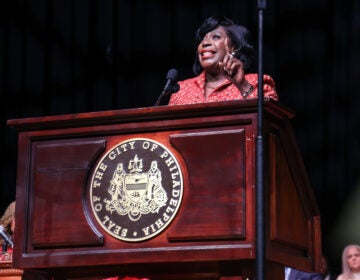Councilmember Parker wants Philadelphia voters to weigh in on ‘stop and frisk’
Councilmember Cherelle Parker quietly introduced an ordinance that would put a charter change question on the November ballot.
Listen 2:18
(NBC10 Philadelphia)
As Philadelphia’s new police commissioner, Danielle Outlaw, starts her first week on the job, City Councilmember Cherelle Parker wants to send her a loud and clear message about what residents in her new hometown want.
“What could be more empowering for a new commissioner than to say, ‘Hey I know this is important’? Not because an elected official who’s here today, who could be gone tomorrow, said it. No, I know because I have these numbers from residents in the City of Philadelphia,” said Parker.
Parker quietly introduced an ordinance last month that, if enacted, would put a question about “stop and frisk” on November’s ballot. Voters will be asked whether to change Philadelphia’s City Charter, requesting that the Police Department “eliminate the practice of unconstitutional stop and frisk,” a racially charged policing tool, rooted in efforts to reduce gun violence, in which police stop and pat down people they believe might be carrying weapons.
The ordinance is nonbinding, meaning it’s largely symbolic. Parker said it’s valuable nonetheless, especially for Outlaw, who is taking the reins of the department as the city’s police union negotiates a new contract.
The bargaining process, a normally sleepy affair, has attracted considerable attention from reformers after a scandal-plagued year that saw more than a dozen police officers leave the force early, including the man Outlaw, 43, was hired to replace.
Former Commissioner Richard Ross abruptly resigned in August after it came to light in an ongoing sexual harassment case that he allegedly retaliated against a female officer after an alleged affair between the two fizzled out.
The following month, the department revealed that it targeted 15 officers for dismissal over offensive social media posts. Only four of them stayed on the job long enough to actually be fired.
“Now is the time to put forward this question,” said Parker. “I’m hoping that the results of when the people speak on this issue, it will even further strengthen the Police Department’s resolve and to say that we’re gonna [weed] it out wherever we see it.”
Outlaw, who comes to Philadelphia after leading the Portland Police Bureau, starts today.
Her new employer declined an interview request.
Under a court-brokered agreement dating back nearly a decade, the Philadelphia Police Department, in tandem with the Mayor’s Office, has significantly reduced the number of unconstitutional stops in the city. But civil rights lawyers assigned to the case say there is still more work to do.
Their ninth — and latest — report to a federal judge on the issue says 16% of a random sample of reported stops made during the first half of 2018 were deemed unlawful, meaning the officer didn’t have reasonable suspicion before making the stop.
Six years earlier, that figure stood at 40%.
“I think they’re nearing a ‘B’ but not quite there yet. And we’re hoping we get to an ‘A’ soon,” said civil rights attorney David Rudovsky, one of the lawyers behind the lawsuit that led to the consent decree.
A big obstacle standing between the city and a better grade: the persistent racial disparities highlighted by the data.
While the total number of reported stops — lawful and unlawful — has dropped to roughly 80,000 a year compared to roughly 260,000 in 2011, there is still a disproportionate number of minorities — mostly younger African American men — being stopped, often for minor, nonviolent crimes.
The report’s sample showed that African Americans accounted for 71% of all stops.
Rudovsky said there are also still too many unlawful frisks and still too few firearms seized from suspects during those pat-downs.
For a police officer to frisk someone legally, he or she must “reasonably believe” the individual is armed. In the random sample from the most recent report, less than 10% of frisks resulted in the recovery of any kind of contraband.
Only 1 in 72 frisks yielded a firearm.
“We knew it would take some time to turn a ship like this around,” said Rudovsky. “It’s taken longer than it should have.”
Against this statistical backdrop, critics say Councilmember Parker’s ordinance doesn’t go far enough.
“If it’s not talking about totally getting rid of `stop and frisk’, I don’t believe it has any value — not at all. Because that means the police will still have the opportunity to harass black and brown people,” said Paula Peebles, who chairs the Philadelphia chapter of the National Action Network. “It’s just gonna be something we vote on.”
Rev. Mark Tyler, of the interfaith group POWER, one of the organizations pushing for change inside the Police Department, commends Parker for introducing a measure that puts unconstitutional stops and frisks back into the spotlight. But he’s doubtful it will have much of an impact.
For Tyler, a better option would be a charter-change question that asks voters to make the city’s Police Advisory Commission — an oversight group — independent from the Mayor’s Office. That, combined with the consent decree, would go a long way in helping to cut the number of unlawful stops and frisks, he said.
“We have to have something that is true civilian oversight, that is strong and that has real teeth and not simply window dressing,” said Tyler.
A Police Advisory Commission representative declined comment.
Charter-change questions that make it onto the ballot are almost always approved by voters — and typically by wide margins.
In last year’s general election, a charter-change question asked voters whether the city should raise the value of city contracts that require a formal bidding process. The number of “yes” votes more than doubled the “no” votes.
A mayoral spokesman said the Kenney administration supports Parker’s ballot question.
“Our position has not wavered since the start of this Administration: the Mayor is committed to eliminating unconstitutional stops, and we are clearly heading in the right direction,” spokesman Mike Dunn said in a statement.
WHYY is your source for fact-based, in-depth journalism and information. As a nonprofit organization, we rely on financial support from readers like you. Please give today.





